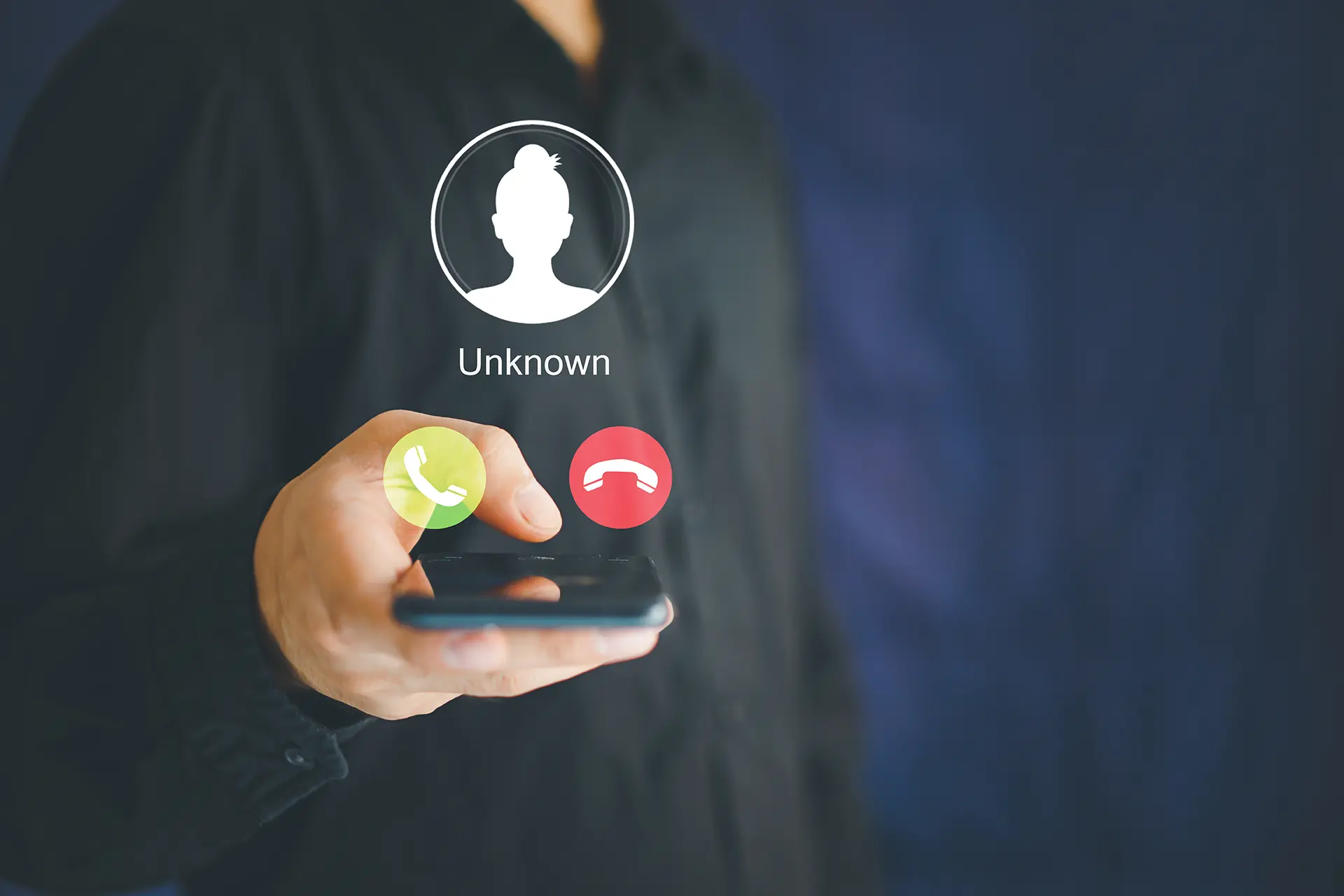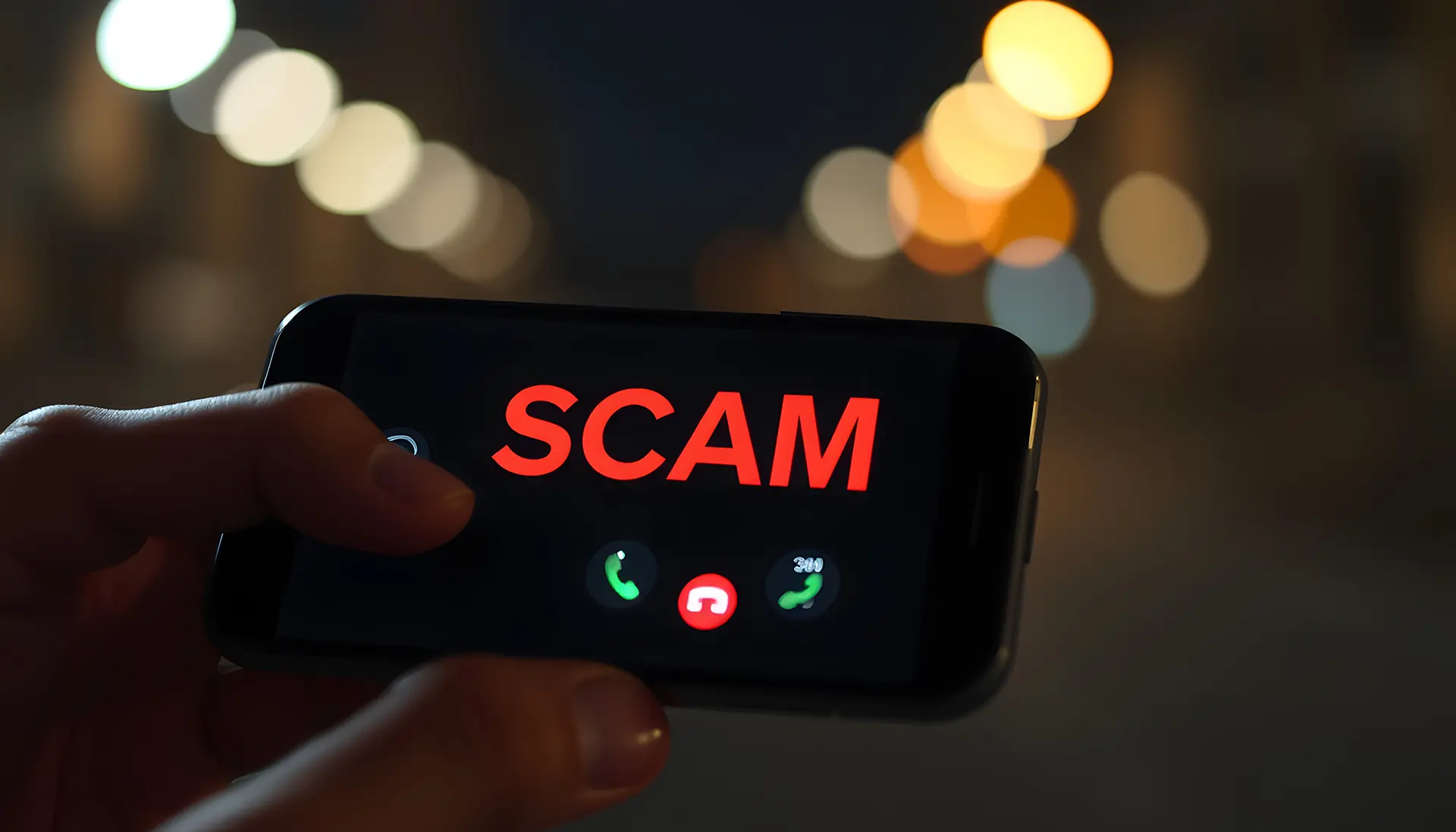Table of contents
- What is vishing and how does it work?
- Recognizing a vishing attack
- Protective measures against vishing
- How to deal with vishing
In recent years, the term “vishing” has gained increasing relevance in the field of cyber security.
But what is vishing, and how can it impact people’s daily lives?
What is vishing and how does it work?
The term “vishing” derives from the combination of the words “voice” and “phishing.”
While traditional phishing uses emails or text messages to scam people, vishing exploits voice calls.
The scammer calls the victim using a phone number that may seem legitimate, often masked to appear as if it comes from a bank or a trustworthy organization.
During the call, the scammer tries to convince the victim to provide sensitive data, such as bank account details, credit card numbers, or other personal information.
Vishing attacks are generally well-orchestrated and can involve several levels of deception.
Example:
The scammer might pretend to be a bank representative calling to resolve an urgent issue with the victim’s account.
Under the pretext of verifying some information, the scammer might ask the victim to provide their personal and financial data.
In other cases, the scammer might use a technique known as “caller ID spoofing” which makes the call appear as though it is coming from an official number, thus increasing the credibility of the attack.
A typical example of vishing might involve a call that appears to come from a bank’s customer service.
Example:
The scammer, with a professional tone, informs the victim of suspicious activity on their account and urges them to immediately provide their bank account details and other personal information to “resolve the issue.”
Under pressure, the victim might not have time to verify the authenticity of the call and provide the requested information.
In other scenarios, the scammer might pretend to be a tech support agent from a large company, claiming that there is a problem with the victim’s computer that needs to be resolved immediately.
During the conversation, the scammer might ask the victim to provide sensitive information or even install malicious software that allows the scammer to access the victim’s computer.
The consequences of a vishing attack can be devastating. Once sensitive information is obtained, scammers can use it to make fraudulent transactions, drain bank accounts, or even steal the victim’s identity.
For this reason, it is essential that people are aware of the risks associated with vishing and know how to recognize and prevent such attacks.
To combat vishing, many financial institutions and organizations have started educating their customers about the risks and implementing additional security measures.
Example:
Some banks send notifications via email or SMS to confirm the authenticity of calls received by customers.
Additionally, it is good practice never to provide personal or financial information unless you are sure of the caller’s identity.

Recognizing a vishing attack
Recognizing an attempt at vishing fraud is essential to protect yourself. Here are some signs to watch out for:
- Urgent requests
One of the main signs of a vishing attack is the sense of urgency created by the scammer. They may claim that there is an immediate problem that must be resolved without delay.
For example, they might say that your bank account has been compromised and that you must immediately provide your bank account details to resolve the issue.
This sense of urgency is designed to push you into providing information without taking the time to think or verify the legitimacy of the request.
- Unsolicited information requests
If you receive a call asking for personal or financial data without an obvious reason, it might be a vishing attempt. Legitimate institutions will never ask for sensitive information through an unsolicited call.
For example, a bank will never ask for your credit card number or PIN over the phone. If you receive such a call, it is important to be cautious and never provide the requested information.
- Unknown or suspicious phone numbers
Even if the number seems legitimate, always verify by calling the organization directly using an official number.
Scammers can use “caller ID spoofing” techniques to make their number appear as though it is from a bank or another trustworthy institution.
To be sure, end the call and contact the institution directly through a number you find on their official website or other official documents.
- Suspicious behavior during the call
During a vishing attack, the scammer might use various techniques to gain your trust. For example, they might try to build rapport by using a friendly and professional tone.
However, if the caller’s behavior seems suspicious to you, it is important to trust your instincts.
If something doesn’t feel right, it’s better to hang up and verify the authenticity of the call with the legitimate organization.
- Requests to install software or access links
Another technique used by scammers is asking you to install software or access specific links.
This might include remote control software that allows the scammer to access your computer and personal data.
If someone asks you to install software or follow a link during a call, it is very likely a vishing attempt. Never follow these instructions without first verifying the authenticity of the request with the legitimate institution.
Protective measures against vishing
To protect yourself from vishing attacks, it is essential to take some precautions:
- Never provide sensitive data over the phone
Banks and trustworthy organizations never ask for sensitive information through unsolicited calls.
- Verify suspicious calls
If you receive a suspicious call, hang up and directly call the organization using an official number from their website.
- Education and awareness
Educate yourself and inform your family and colleagues about what vishing is and how to recognize it.
How to deal with vishing
If you suspect you have been a victim of a vishing attack, act quickly to minimize the damage:
- Change your account passwords immediately
- Notify your bank
- Monitor your account for suspicious transactions
Moreover, consider reporting the fraud attempt to the relevant authorities to help prevent further attacks.
In conclusion, vishing represents a growing threat in an increasingly connected world.
Understanding what vishing is and the techniques used by scammers is the first step in protecting your personal and financial data.
Remember never to provide sensitive information over the phone and always verify the caller’s identity.
Awareness and prevention are the best defenses against this type of fraud.
FAQ
- What is vishing?
Vishing is a phone scam that aims to obtain personal and financial data using deceptive techniques. - How can I recognize a vishing attempt?
Be aware of urgent requests for personal data, calls from unknown numbers, and unsolicited information requests. - What data is at risk during a vishing attack?
Personal data, bank account details, credit card numbers, and other sensitive information are at risk. - What should I do if I suspect a vishing attack?
Hang up, verify by calling the organization directly, and report the fraud attempt. - Do banks ever ask for sensitive data over the phone?
No, banks and trustworthy organizations never ask for sensitive data through unsolicited calls. - How can I protect myself from vishing?
Never provide sensitive information over the phone, always verify the caller’s identity, and educate yourself about these risks. - What is the difference between vishing and phishing?
Phishing uses emails or text messages to deceive victims, while vishing uses voice calls. - Can a phone number be masked during a vishing attack?
Yes, scammers can use techniques to make their number appear legitimate. - What does the term “vishing” mean?
The term “vishing” is a combination of the words “voice” and “phishing.” - How can I avoid becoming a victim of vishing?
Educate yourself and others about the risks and take preventive measures, such as never providing sensitive information over the phone.
